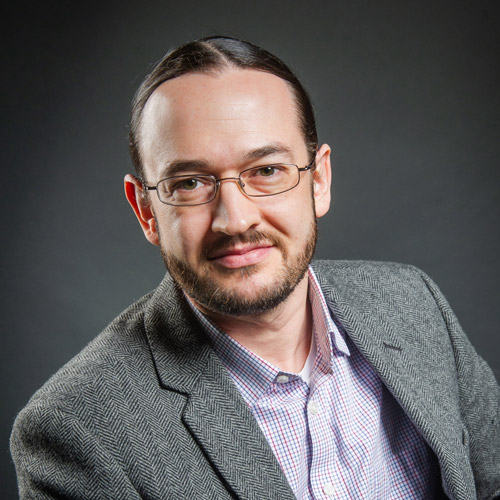BU’s New Ambassador to the Arts Benjamin Juarez
CFA’s dean is conductor and advocate
In the video above, learn more about the new dean of the College of Fine Arts, Benjamin Juarez. Photos by Kalman Zabarsky
On a rainy afternoon, two dozen students and faculty gather in a classroom at BU’s Opera Institute, where singers are rehearsing the Paul Bowles composition The Wind Remains. An elegantly dressed man enters the room to applause, and a hush descends. He smiles, quickly putting the two singers at ease, assuring them, “I’m all ears,” as he takes a seat near them.
The man is Mexican music conductor and scholar Benjamin Juarez, the new dean of the College of Fine Arts. Over the next 45 minutes, during an animated master class, Juarez helps the students pronounce the piece’s Spanish lyrics, his hands moving expressively as he discusses the piece, and listens intently as they sing passages and discuss their characters.
Listening is something that comes naturally to the 59-year-old. “As a musician, my first tool is my hearing, my ears,” he says. It is a quality that comes in handy in his new role as dean. “I have to be very aware of the different voices within the College of Fine Arts and the University at large, and all the stakeholders and shareholders.”
William Carroll, a College of Arts & Sciences English professor and department chair, headed the search committee that recommended Juarez for the job. Carroll says that “everyone found him charming, attentive, focused; I was impressed that here was someone who actually listened, and attended closely to what was said, even in a large gathering when it’s easy to look around.”
An early love of music
Juarez grew up in Colonia del Valle, a borough of Mexico City, the son of a pharmacist-turned-real-estate-agent and a homemaker. Music, he says, was everywhere. He recalls a great aunt who lived marginally, raising chickens inside her home, but also sang La Traviata with a band. His father would lull him to sleep as a young child with his violin. Juarez laughs now, recalling how he used to implore his father to stop playing so he could get some rest.
As an altar boy, he fell in love with church music. “The sound of the organ in the cathedral, in the solemn services in the churches, had a very special meaning,” he says. (Juarez is now one of the world’s authorities on early Mexican cathedral music). Soon, he was playing harpsichord and piano, and later the recorder and several early music instruments.
“I was always playing music on the record player,” he says. “When someone came over, I would ask them if they wanted to listen to some opera or some symphony before my parents arrived, instead of asking them if they wanted tea or coffee. That puzzled many people, but for me it was just a part of being hospitable and welcoming someone.”
While studying for an MFA at the California Institute of the Arts in the early ’70s, Juarez discovered a passion for conducting. He found that his love of music, coupled with an analytical mind, were the perfect skills for mastering the baton. “What I love about conducting is that you have a very multiple perspective of music. If you listen to a symphony, you can put yourself in the place of the composer and look at the arches and the structure and the colors,” he says. “But you can also look at it from the perspective of the first cello or from the perspective of the second oboe.”
Juarez quickly became one of Mexico’s preeminent conductors. By his late 20s, he was assistant conductor and principal guest conductor of the State of Mexico Symphony Orchestra and then associate conductor of the Mexico City Philharmonic Orchestra. Among his other prominent positions was director of the Gran Festival de la Ciudad. He has conducted symphonies and chamber orchestras around the world and has made a dozen recordings over the course of a four-decade career, earning a Latin Grammy nomination in 2001 for Best Classical Album for his recording of Manuel Arenzana’s Maitines para la Virgen de Guadalupe.
Asked about his favorite composer, Juarez quickly replies, “Whatever I’m conducting at the time is my favorite music.”
Champion for the arts
What distinguishes Juarez is not just his musicianship, but his long career as an advocate for the performing and visual arts. He recalls that as a child, his family traveled frequently throughout Mexico and abroad. Each trip was an opportunity to explore an area’s history and culture. “It was of capital importance to visit the historic sites and the museums,” he says of those early travels. Thus was born a lifelong passion for art and architecture, as well as for dance and theater.
That background served Juarez well as general director of Mexico’s national arts center, Centro Nacional de las Artes, where he oversaw professional schools in music, dance, arts, theater, and film, as well as more than 20 theaters and performing arts spaces. Prior to accepting his current position at BU, Juarez was director of culture, technology, and development at the Dr. Jose Maria Luis Mora Research Institute, in Mexico City, which focuses on social sciences, history, and culture.
Those experiences reinforced Juarez’s belief that the arts should play a role in everyone’s life—regardless of a person’s ability to pick up a paintbrush or carry a tune in the shower.
“The arts can enhance and open new ways of thinking and new ways of doing and new ways of collaborating with people in different disciplines,” he says. “A successful person, no matter where he or she is, will always have a space and a place for the arts.”
New role as dean
Juarez first became aware of the College of Fine Arts while attending a seminar at Harvard University’s Business School. His interest in the institution was piqued after discovering that Martin Luther King, Jr. (GRS’55, Hon.’59) was a graduate and that many noted artists and Nobel laureates were on the faculty. When he learned earlier this year that BU was searching for a dean for CFA, he was immediately intrigued.
“I thought it would be a fantastic opportunity to work again in arts education within a large research university,” Juarez says. He was excited by the job’s possibilities for forging a two-way relationship: exploring how CFA could enrich the broader University and how the University could prepare arts majors for their inevitable economic challenges.
“In this time when young people will not only have to change jobs, but change professions several times in their lives,” he says, “the advantages of a university education that is centered and focused on creative thinking and critical thinking will be the best tools to thrive and to be successful.”
Juarez finds himself drawing on his experience as a conductor as he begins to make his mark at CFA. “The conductor should be an advocate for the composer and someone who brings things together and makes everybody work towards a common goal—so, sometimes one instrument has to shine and the others have to accompany,” he says. “It’s the same process when you lead a complex organization, where you have to divide the spotlight with all the different parts and you step back a little bit so that the greater forces within can really shine, so that everybody plays harmony together.”
That sense of diplomacy has earned Juarez plaudits from students, faculty, and administrators alike. “His enthusiasm, his personal warmth, and his devotion to students and faculty are important traits for a successful dean,” President Robert A. Brown notes.
Ask Juarez what he hopes to accomplish in his new role and the first word that comes up is inevitably “collaboration.” Gone, he says, is the notion, popularized by the Romantic movement, of the artist as someone who toils alone in an attic studio. Artists in the 21st century must think of themselves as entrepreneurs if they are to be successful, and to do that, they must learn to collaborate. Juarez says his goal is to “make our students resilient and hopefully more successful than someone who’s trained in their discipline, but not really educated in facing all the uncertainties and all the opportunities of the 21st century.”
“We have to make students aware that it’s not only practicing eight hours a day in the rehearsal room or spending eight hours a day in the studio that will guarantee success,” he says. Success “is also about being in the world and the way you present your work, you present yourself, you interact with the market, and for that, you have to acquire a different set of tools, know who you are, be socially committed, and be an agent of change.”
Juarez also wants to forge collaborations of a different kind. “It’s our mission, as the College of Fine Arts, to make the arts a part of every BU student’s life.” To do that, he cautions, you can’t just engage in “one-size-fits-all” outreach. What’s needed is “a very personal dialogue,” where you program to different interests in the community. “We have to have strategies that bring the arts into the perspectives of the fields of interest of each school and each community.”
Finally, Juarez envisions creating collaborations with iconic cultural institutions close to home—the Boston Symphony Orchestra, the Institute of Contemporary Art, the Museum of Fine Arts, and the New England Conservatory, to name a few—as well as farther afield. He hopes to develop projects between CFA and cultural institutions in Russia, China, Brazil, and India in the coming years.
There is also the work of administering an annual budget of $20 million, overseeing the curriculum for more than 2,000 students, and raising funds to modernize CFA’s physical facilities.
To do all that, Juarez says, will require flexibility. As dean, he says, he is charged not only with carrying on traditions and values, but with providing the tools for the college to evolve, in an age when the arts are presented by seemingly ubiquitous technologies.
“Now, more people than at any other time in history listen to music,” he says. “Fewer people go to concert halls and to live symphony orchestras, but more people listen to music on their smartphones or on their computers, on their MP3 players, satellite radio, and we have access to the arts in many more ways. Arts are ubiquitous now and that’s thanks to technology. And there’s more to come. So we need to have that flexibility, that dialogue with what is happening in our times, to be able to move ahead in a creative way, but of course always with respect for what we have received from the past.” A task, he notes, that’s easier said than done.
Despite his hectic schedule, Juarez says he wants to continue conducting when time allows. He is married to Marisa Canales, a flutist and record company executive, and they have two sons, both of whom have inherited their parents’ artistic bent. Pianist Cristobal teaches at Mexico National Conservatory, and Benjamin is a designer.
John O’Rourke can be reached at orourkej@bu.edu. Devin Hahn can be reached at dhahn@bu.edu.


Comments & Discussion
Boston University moderates comments to facilitate an informed, substantive, civil conversation. Abusive, profane, self-promotional, misleading, incoherent or off-topic comments will be rejected. Moderators are staffed during regular business hours (EST) and can only accept comments written in English. Statistics or facts must include a citation or a link to the citation.